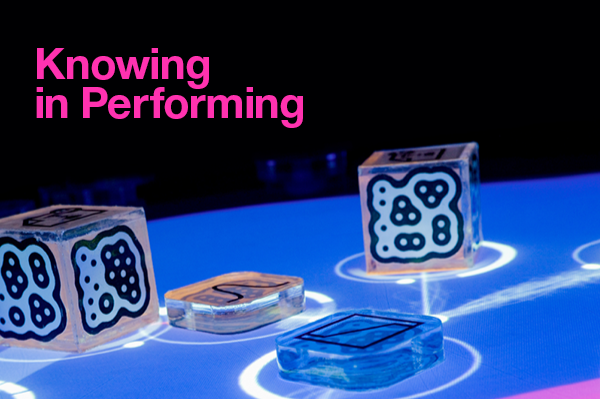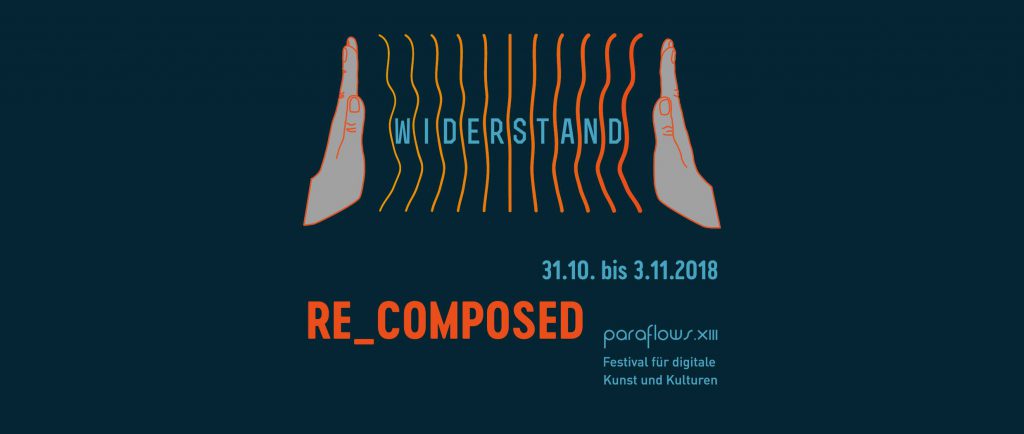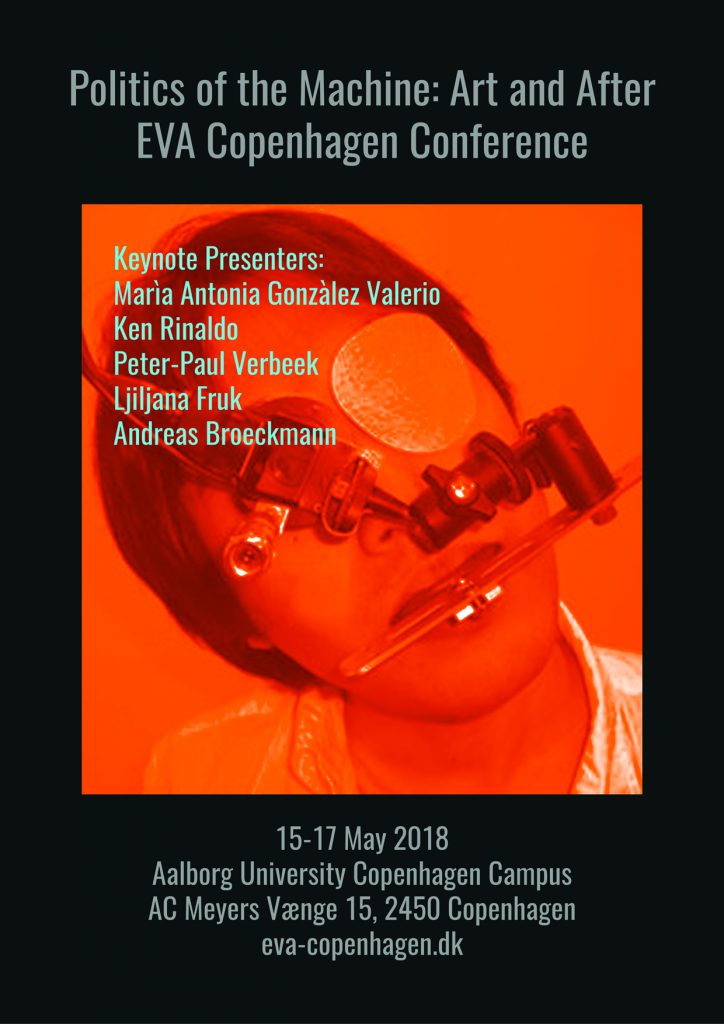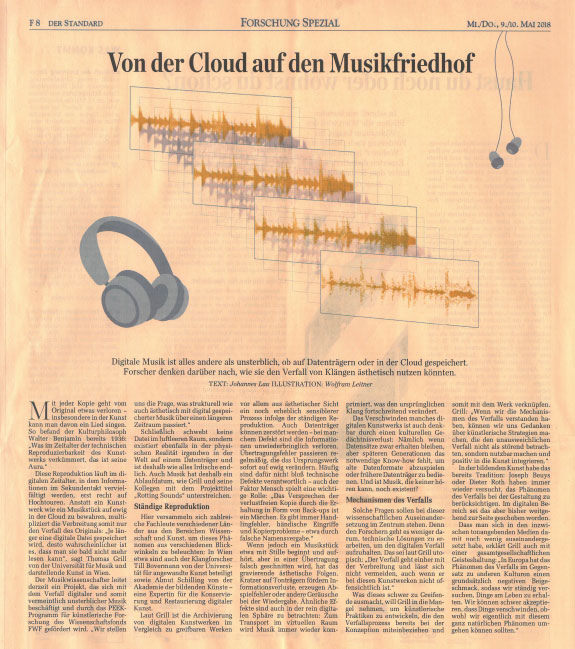Dissemination
Electroacoustic composition “residuals” at re_composed festival, October 31
At this year’s edition of the re_composed series, part of paraflows XIII, festival for digital art and cultures, i will present a new piece of acousmatic music, titled residuals.
The piece is re-composed solely of compression artifacts, originating from my piece Points of View, as performed at the same re_composed festival five years earlier. The new piece has the same 24 minute duration as the prior performance, and also the same 4-channel layout.
October 31 thru November 3, 2018
weisses haus, Hegelgasse 14, 1010 Wien, Austria
First publication “Embracing the temporal deterioration of digital audio – A manifesto”
We are happy to announce that our paper “Embracing the temporal deterioration of digital audio – A manifesto” has been accepted for publication in the upcoming proceedings of the Politics of the Machines conference on the British Computer Society’s eWic platform.
This paper presents the fundaments and challenges of the Rotting sounds project and expresses the most important theses in the form of a manifesto.
Most of today’s media output, be it audio or video, is produced and stored in the digital domain. Although digital data are adorned by the myth of lossless transmission and migration, everyday experience does prove the existence of degradation and, ultimately, data loss in various forms. This pertains to the physical nature of storage media and playback devices as well as to media formats and software in the context of their technological infrastructure.
We have recently launched the project of artistic research ‘Rotting sounds – Embracing the temporal deterioration of digital audio’, funded by the Austrian Science Fund (FWF). Since degradation cannot be avoided by principle, we therein propose alternative perspectives on the nature and the implications of deterioration in theory and artistic practice, specifically for the domain of digital audio.
This manifesto shall represent an introduction to our endeavour, as much as it shall form a guideline for us carrying out the research.
Talk at ars electronica symposium, September 9
Under the title “Letting loose, embracing the loss”, I will talk about implications of audio deterioration at the Ars Electronica symposium “… under control of music, music under control of …; composing (in) digital worlds”, part of the Sonic Saturday at Anton-Bruckner Private University, Linz.
Most of today’s media output, also music, is produced and stored in the digital domain. Although digital data are adorned by the myth of lossless transmission and migration, everyday experience does prove the existence of degradation and, ultimately, data loss in various forms. This pertains to the physical nature of storage media and playback devices as well as to media formats and software in the context of their technological infrastructure.
Usually, this loss of control over the musical material is counteracted in the personal or societal domain using various kinds of archival strategies.
In the running project of artistic research “rotting sounds”, however, we rely on the hypothesis that by gaining pertinent knowledge and developing adequate means to work with digital degradation in a constructive fashion, its inevitability can be turned from being a source of irritation into a potential for aesthetic choice.
September 8, 2018, 4pm-7pm
Anton Bruckner Private University
Studiobühne
Hagenstraße 57, 4040 Linz, Austria
Presenting a manifesto at the “politics of the machine” conference, Copenhagen, May 16
I will present some observations and implications on our topic of the degradation of digital audio. Consequentially, i will try to formulate a number of bold claims summing up to the form of a manifesto.
Politics of the Machine conference
Aalborg University Copenhagen
A. C. Meyers Vænge 15, 2450 Copenhagen, Denmark
May 16 2018, “sonic machines” session at 3:45pm
Article in Austrian daily newspaper Der Standard, May 10
An interview by Johannes Lau with Thomas Grill on the rotting sounds project has been featured in an article of the Austrian daily newspaper Der Standard.
In Europa hat das Phänomen des Verfalls im Gegensatz zu anderen Kulturen einen grundsätzlich negativen Beigeschmack, sodass wir ständig versuchen, Dinge am Leben zu erhalten. Wir können schwer akzeptieren, dass Dinge verschwinden, obwohl wir eigentlich mit diesem ganz natürlichen Phänomen umgehen können sollten.
Presentation and discussion @ Applied Practice, AIL, May 2
Right after the official start with May 1, Thomas Grill and Almut Schilling will present concepts and strategies of the rotting sounds project as part of the Applied Practice lecture series, both from their respective angles of sound art and digital preservation.
Following will be an open discussion session led by media expert Michael Iber where the audience is cordially invited to share their thoughts on the topic with us. The talk will be in held in German language.
May 2 2018, 17h
Angewandte Innovation Laboratory (AIL)
Franz-Josefs-Kai 3, 1010 Vienna, Austria
Contribution for the isaScience conference accepted
Thomas Grill and Almut Schilling have put forward a proposal termed “Libre tools and strategies embracing the temporal deterioration of digital audio” for the isaScience 2018 conference with the topic of “Participatory Approaches to Music & Democracy” in Reichenau/Rax to be held on August 10-14.
Our proposal has been accepted by the organizers and we are looking forward to presenting our perspective.
Abstract: Most of today’s media output is produced and stored in the digital domain. The efficiency as well as its ease of use, also in the arts, has led to an overwhelming abundance of data representing audio and video content.
The practice of a digital artist, specifically also a digital musician, is typically bound to a complex ecosystem of commerical hard- and software. End-of-life of one of the tools causes a chain reaction of obsolescence in the entire system, also necessitating the acquiry of new know-how.
On the other hand, published products of digital arts practice appear on media dependent on technological reproduction devices. The material embodiments as much as the logical formats of these representations are subject to deterioration over time, demanding perpetual actions of media migration for successful preservation.
The global accessibility of digitally stored media implies that it is not a scarce good any longer. The cost for the consumer is low, but so is the quality of the experience. The act of music listening has shifted from physically interacting with an audio sculture to subjecting oneself to an infinite succession of “tracks”.
Our project of artistic research “rotting sounds” investigates the causes, processes and ramifications of degradation and technological obsolescence within the domain of digital audio. The hypothesis is that by providing pertinent knowledge and respective means to encounter digital deterioration in a constructive fashion, the inevitable is no longer a source of irritation but rather an æsthetic benefit.
For this, we will put forward open technology fostering self-empowerment and independence for digital artists from commercial constraints. On the other hand, we will propose artistic strategies to work with the fleeting nature of digital data, especially exploring the qualities of ephemerality.
In the context of the isascience conference, we will outline some focal points at this early stage of our project. We hope to open up a discussion on the present condition of digital media arts, and about strategies for regaining control of artistic means of expression in the field.


Rotting Sounds @ Knowing in Performing symposium, April 4
Our upcoming research project Rotting Sounds will be presented at the Knowing in Performing symposium for artistic research at the University of Music and Performing Arts Vienna.
4 April 2018, 9.30 am – 6.00 pm
MDW – University of Music and Performing Arts Vienna
Fanny Hensel Hall
Anton-von-Webern-Platz 1
1030 Vienna
Artistic research as it has emerged and evolved over the last three decades is related to an increasing interest in epistemological questions as well as an interrogation of how artistic practices constitutively support and instigate processes of knowledge creation. Art is thus being looked at both as an object and a medium of research, becoming part of a general discourse on knowledge regimes and research models.
The symposium will investigate this dynamic, ever-renewing field of interrelations with a special focus on the performing arts. Highlighting the issue of various implementation models in curricula and study programmes in higher arts education, it will critically analyse international institutional policies and facilitate an open debate on how to integrate current practices and discourses into future teaching and research structures.
Rotting sounds poster presentation at the MDW science conclave, February 27
Yesterday I had the chance to present the upcoming Rotting Sounds project at the science conclave, an internal steering meeting of the University of Music and Performing Arts Vienna. I had some interesting discussions and got really nice feedback. Very much looking forward to the project start in May.
Contribution for the POM Copenhagen conference accepted
We have submitted a proposal “Embracing the temporal deterioration of digital audio – A manifesto” for the EVA conference with the overarching topic “Politics of the Machine: Art and After”, held in Copenhagen on May 15-17, 2018.
Our contribution is in the form of a manifesto, targetted to the “Returns of the machine” track of the conference. It has been strongly accepted by the conference comittee.




